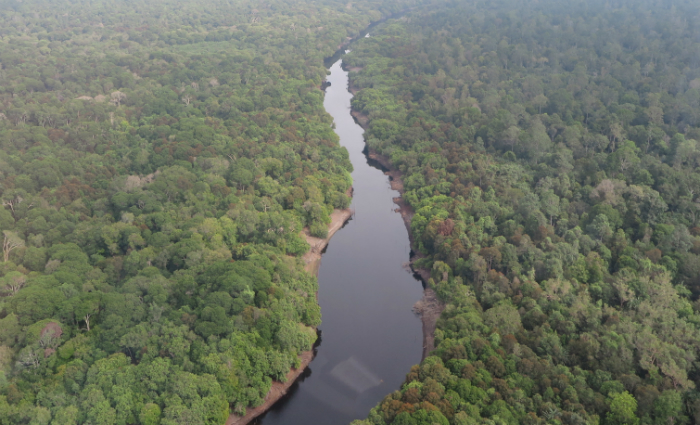
The long-awaited independent report into Indonesian paper giant Asia Pulp and Paper’s operations finds the paper giant has stayed true to its zero-deforestation pledge, but has a long way to go in other areas.
The four-month evaluation by environmental organisation Rainforest Alliance says one time pariah APP has made ‘moderate progress’ towards the commitments set out in its Forest Conservation Policy (FCP) and 10 other related statements.
APP was a major supplier of fine paper into Australia until a decade ago, then merchants turned away during the years it was accused of environmental malpractice, however in the last year or two APP paper has begun to be stocked once again by Australian merchants.
The evaluation audits both the policy creation and implementation on the ground during the first 18 months of the FCP, which was launched two years ago today.
[Related: Read the whole APP saga]
APP is found to have fulfilled arguably its most important promise to cease all clearance of natural forest in its 38 concessions, except for two minor breaches in 2013, and to stop using natural forest wood in its mills from August 2013.
It has also stopped developing canals and other infrastructure on peatland, and has developed measures to assess its global supply chain to ensure that it never uses wood harvested from natural forests, or uses suppliers involved in land clearing.
As part of its supply chain assessment, APP terminated the contract of one supplier in East Kalimantan that refused to stop converting natural forest to plantations.
While High Conservation Value (HCV) and High Carbon Stock (HCS) assessments of APP concessions are not due for release until June, and APP will not be able to build new plantations on areas designated as either.
However, APP is allowed to keep harvesting from existing plantations in HCV or HCS areas, so long as they are well managed and their environmental value is maintained and enhanced.
This means the company will not have any fewer trees available for production. Recent independent research shows it has enough supply from its existing plantations to meet current and future paper demand without destroying natural forest.
APP sustainability managing director Aida Greenbury says the assessments will double the amount of conservation areas in APP concessions to 400,000ha.
However, the report finds forest clearing by third parties like local villagers, miners, illegal loggers, and neighbouring palm oil and forestry companies remains a serious problem and that APP’s attempts to stop them have been ineffective.
In many areas the evaluation team visited, villagers had cut down more than 600ha and in some cases more than 1000ha had been cleared for mining or palm oil.
Rainforest Alliance senior vice president for forestry Richard Donovan identifies this as the biggest problem for APP and while the company needs help from other parties, it ‘needs to step up and do all it can, and help its suppliers as well’.
Greenbury says illegal forest clearing is a problem ‘endemic’ to all of Indonesia.
“NGOs said if we turned off the chainsaws the forest would be safe, but that has turned out to be an oversimplification,” she says.
“We want to be part of the solution but we can’t do it alone, the problem has its roots in poverty, criminality, and lack of governance and enforcement by authorities.”
[Related: More paper news]
The report also found while APP supplier workers were well paid, given free healthcare, and had good access to training and advancement, the treatment of sub-contractors used by suppliers was ‘substandard’.
Many do not have written contracts, are paid below minimum wage, and spend long periods in areas with no sanitation, clean water, or education for children, and do not have adequate safety equipment.
Other policies like conflict resolution, community engagement, transparency, and peatland management are only in early stages of implementation.
The report finds that in many respects APP conservation policies are ‘not consistently mirrored on the ground’ and that communication with suppliers remains an issue despite significant training efforts.
“Staff in virtually every concession… told the team that operations within existing plantations and on peatlands have not changed compared to the years prior to the FCP,” the report reads.
Donovan says while there is support for the policy at a corporate level, implementing policy on the ground is the biggest challenge facing APP.
“Many building blocks essential for change, such as policies and standard operating procedures, training and outreach, are in place,” he says
“There is still work to be done in implementing some of those policies and procedures in the field. This is a gap APP must address.
“The proof is in the pudding.”
Greenbury says the report shows that APP’s efforts to achieve zero deforestation are on the right track.
“We’re pleased that the Rainforest Alliance has recognized the progress we are making. We must have the courage to continually improve as we learn lessons from implementation. The report has highlighted a number of areas which require additional focus,” she says.
Comment below to have your say on this story.
If you have a news story or tip-off, get in touch at editorial@sprinter.com.au.
Sign up to the Sprinter newsletter
